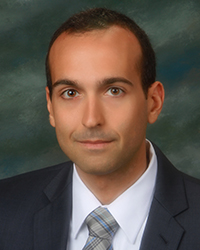Achieve investment objectives with the use of a 1031 Exchange - by Albino Caporale
Most people are aware that by using section 1031 of the Internal Revenue Code, an owner of real property, held for investment or productive use in a trade or business, can sell that property and reinvest the proceeds in a like kind property and defer the capital gains from the sale. While this deferral of capital gains is a significant benefit, there are also numerous ancillary benefits to doing a 1031 exchange that can provide significant tax savings and help taxpayers achieve their individual investment objectives.
Through the use of a 1031 exchange taxpayers can leverage their investments; whereby deferring the tax obligation on the investment’s gains, taxpayers have a greater amount of capital which they can apply to future investments to generate larger returns. This increased purchasing power gives a taxpayer extra leverage to acquire a property or several properties with significantly higher investment benefits than if he or she had sold the original property, paid all the taxes associated with the sale and reinvested the remaining proceeds.
This greater leverage created through the use of a 1031 exchange can also be used to create an additional benefit in the form of increased basis in the replacement property. An increased basis on depreciable real property results in a larger depreciation deduction. Depreciation is considered a non-cash expense that reduces the amount of taxable income and the amount of money a business must pay in income taxes, which in turn results in an indirect increase in the cash flow a taxpayer receives from income producing property. A 1031 exchange could also be used to increase the cash flow from a taxpayer’s investment portfolio by allowing the taxpayer to exchange a non-depreciable asset for a depreciable asset, such as vacant land exchanged for an apartment building.
A taxpayer may also use a 1031 exchange to relocate a property he or she presently owns by exchanging it for property in another location all while deferring capital gains tax. A taxpayer may wish to relocate his or her investment property if, for example, the taxpayer wants to relocate to a property in a different state to take advantage of that state’s advantageous tax laws, or feels the property is unlikely to appreciate further and wants to relocate the investment to a location with greater growth potential. Another scenario we see commonly in New England is, the taxpayer is moving from Connecticut or Massachusetts to Florida and wants an investment nearby for management purposes.
A taxpayer’s desire to no longer actively manage rental property can also be achieved through the use of a 1031 exchange. If the taxpayer owns a property or several properties burdened with extensive maintenance costs and requiring intensive management, he or she can exchange and replace that property for others with less responsibility. For example, Delaware Statutory Trusts are a passive investment vehicle which can be acquired as replacement property in a 1031 exchange, providing cash flow with no active management. This can be an effective tool for aging taxpayers who wish to continue their investment but be relieved of the burdens of management.
A 1031 exchange can also be used effectively to allow elderly taxpayers to receive the maximum benefit of their investments during their lives while reducing the tax burden to their heirs upon their passing. A taxpayer could exchange into numerous investment properties over the years and pass those investments on to his or her children upon their passing. The taxpayer’s children would realize a step-up in the cost basis of all of those investments to the current fair market value, essentially eliminating the tax burden altogether.
In essence through the use of a 1031 exchange, taxpayers are able to redeploy capital into investments that are greater in scale, more diverse or more aligned with their business or investment strategy, and are better suited to their particular circumstances.
Albino Caporale is the exchange director of CentricPro Management Services, Inc., Rocky Hill, CT
Atlantic Property Management expands facilities maintenance platform: Assigned two new facility management contracts in RI


Unlocking value for commercial real estate: Solar solutions for a changing market - by Claire Broido Johnson

Connecticut’s Transfer Act will expire in 2026. What should property owners do now? - by Samuel Haydock

New Quonset pier supports small businesses and economic growth - by Steven J. King


 (1).png)








 (1).png)
